Why Chainwire Fencing?
Chainwire fencing is what QFence first became well-known for across Brisbane and the surrounding suburbs. Many decades ago it was the most popular fencing material, and even though there are now a lot of new fencing options, a chainwire fence is still very popular. It’s popularity is mainly due to how cost effective and long lasting it is. Infact, it’s common to find chainwire fences that are well over 30 years old. In high areas, it is preferable to use chainwire or steel security fencing instead of fences that provide 100% coverage (eg Colorbond or Timber fencing).
To find out more about Chainwire Fencing, click one of the links below.
Chainwire characteristics
These fences and gates come standard in a number of heights between 900mm and 3600mm. They are generally available in both a 50mm diamond size and a 60mm diamond size, but smaller diamond sizes are also available for specific applications.
The top of the wire can be knuckled off (in other words – smooth) or have a barbed top, which is suitable more for high security situations. For high security settings, we often install 3 strands of barbed wire on top of either 1800mm or 2100mm high chainwire.
Chainwire generally comes in 2.5mm wire thickness (which is the most popular) and a 3.15mm thickness. This is more popular in higher security settings.
In some cases, we supply a galvanised posts/ rail and chainwire, and in other cases, black powdercoated posts/rail and black PVC coated chainwire.
We can manufacture gates specifically suited to each fence which involves making the frames, and then lacing the chainwire onto the frame.
Our expert installers then install the fence and gates, once manufacturing and powdercoating (if necessary) has been completed.
Chainwire Fencing Uses
Chainwire is often used to fence areas to make them more secure and to keep people and animals in or out.
You can use Chainwire Fencing for:
- Factories
- Industrial Properties
- Sporting Fields
- Airports
- Schools
- Parks
- Dog Parks
- Residential Properties
- Warehousing
- Security Cages
- Animal Enclosures
- Tennis Courts
- Cricket Nets
- Farm Enclosures
- Building Sites
- Walkways
- Work Areas
Photo gallery
Some of our Chainwire Fencing projects
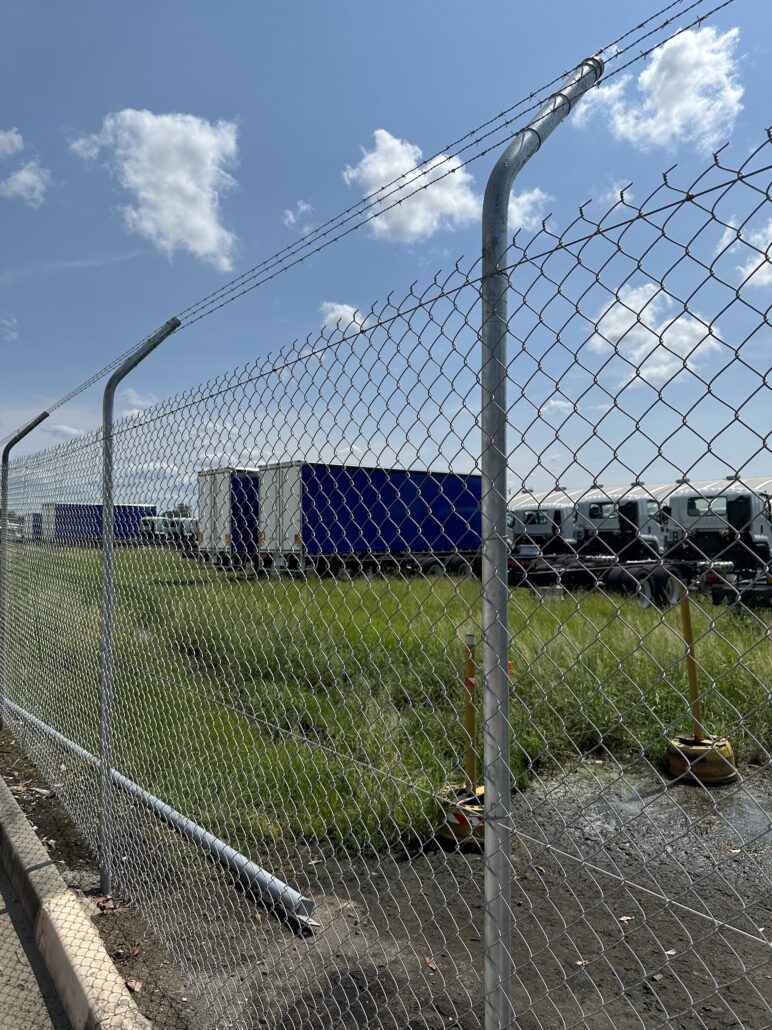


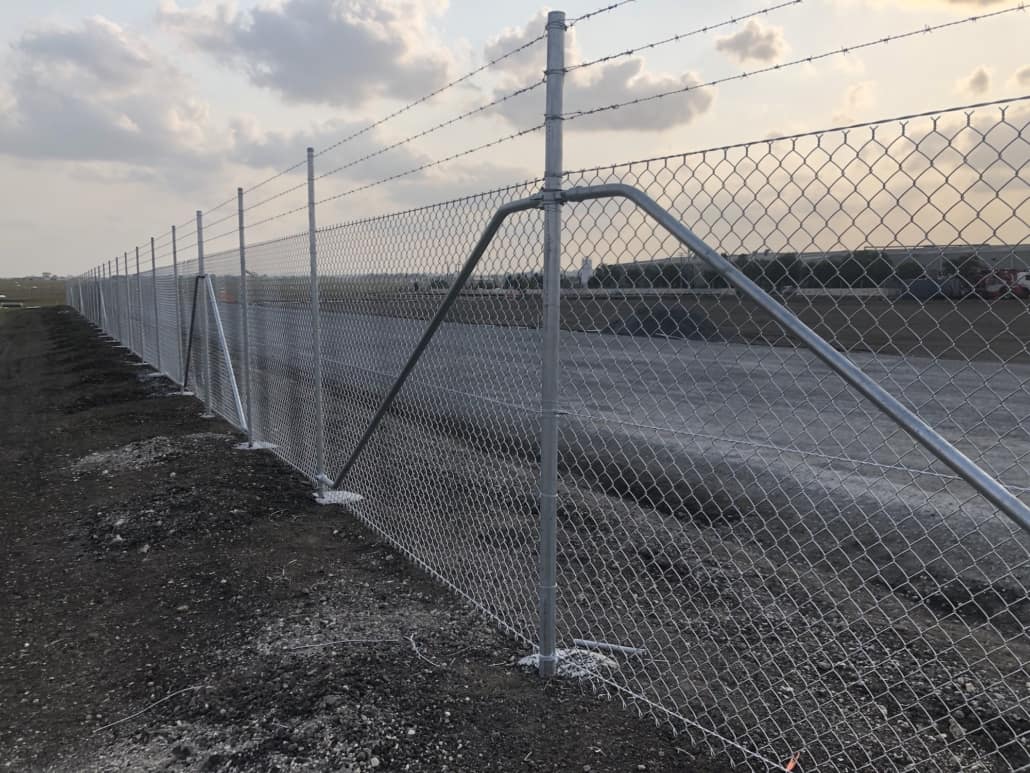





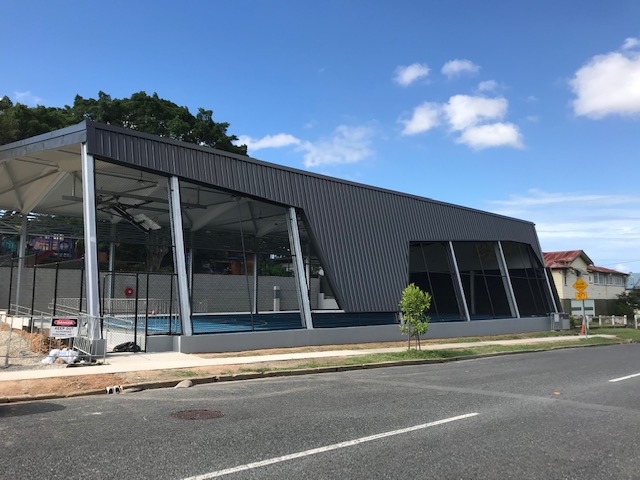

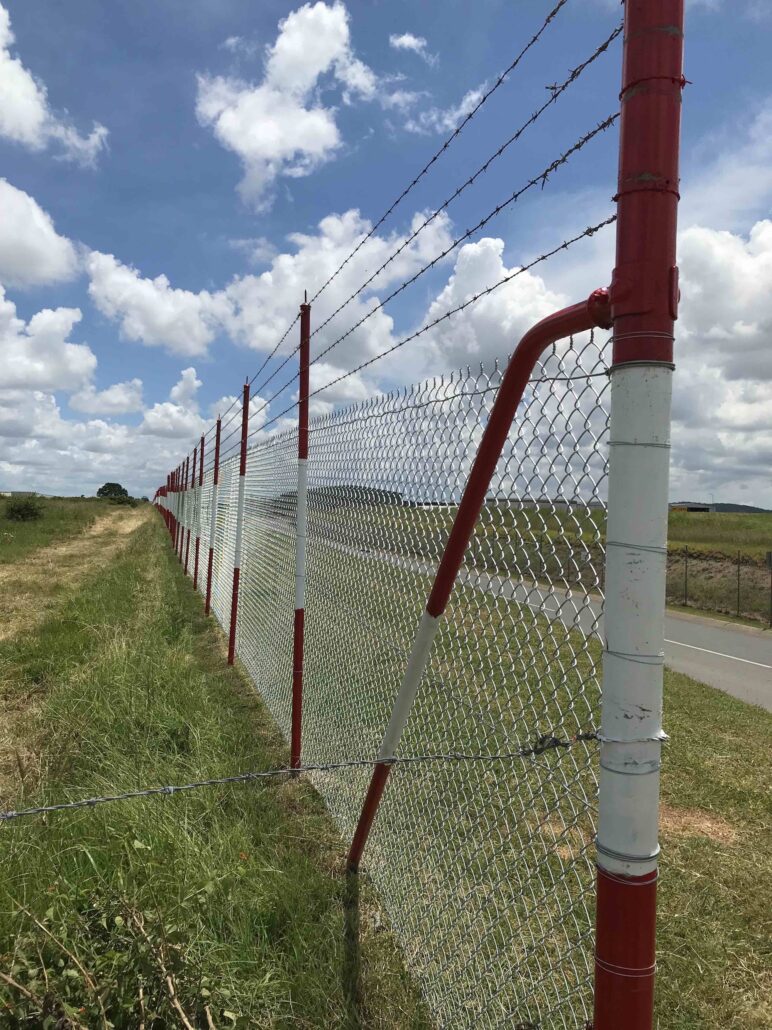



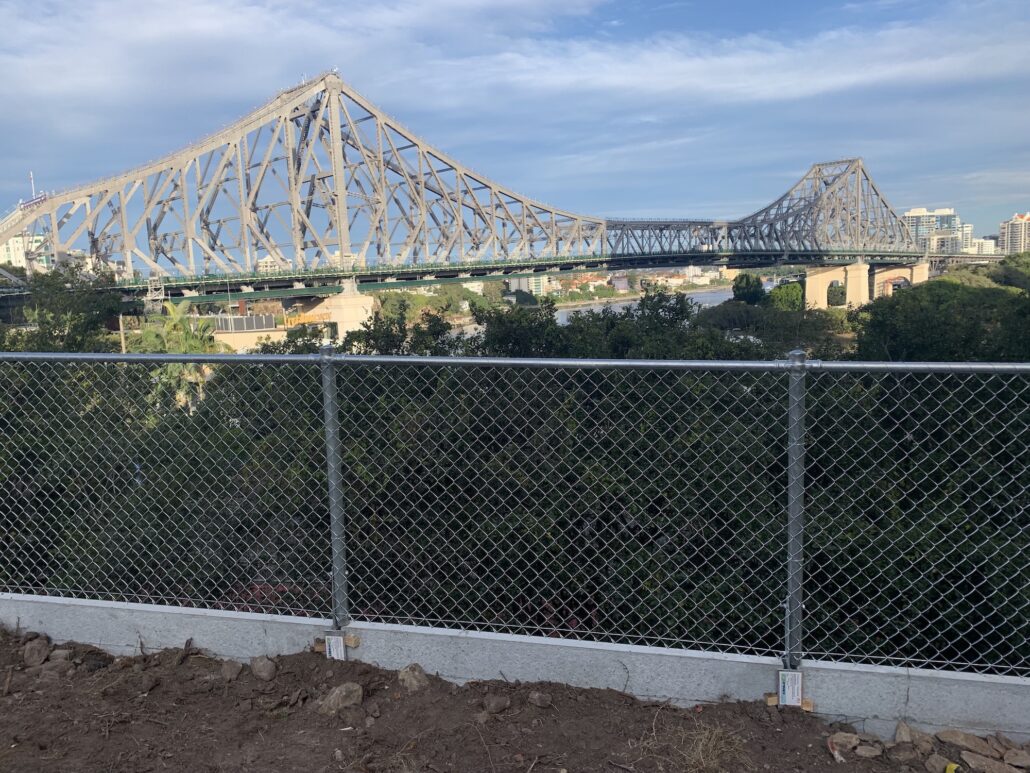
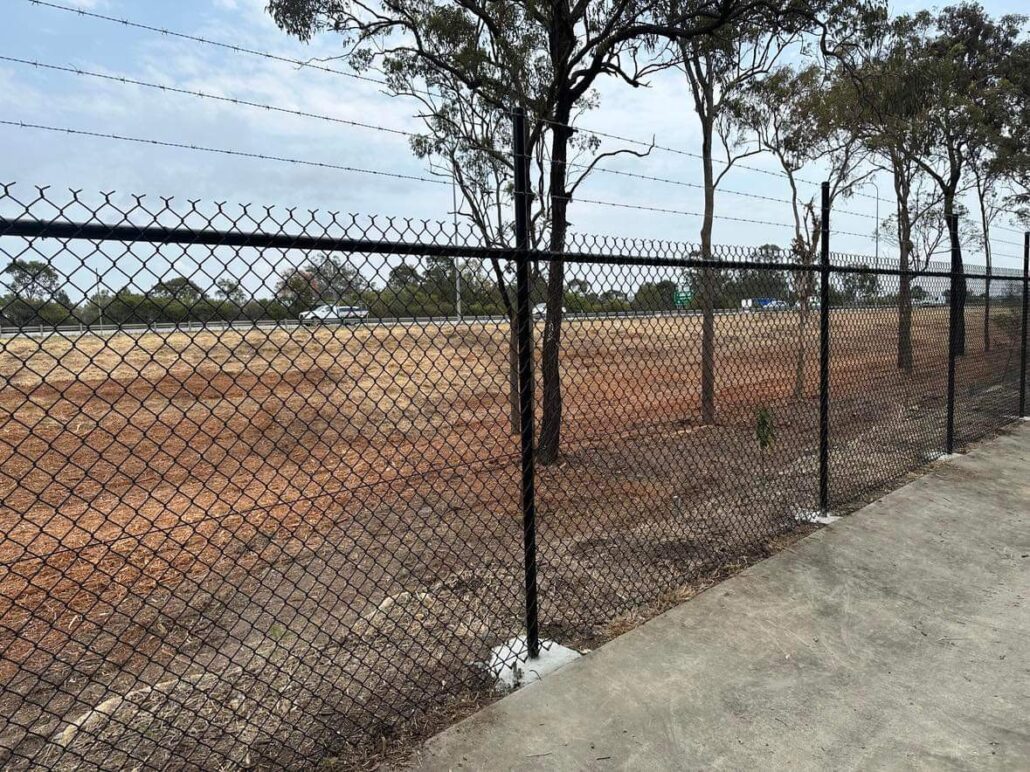
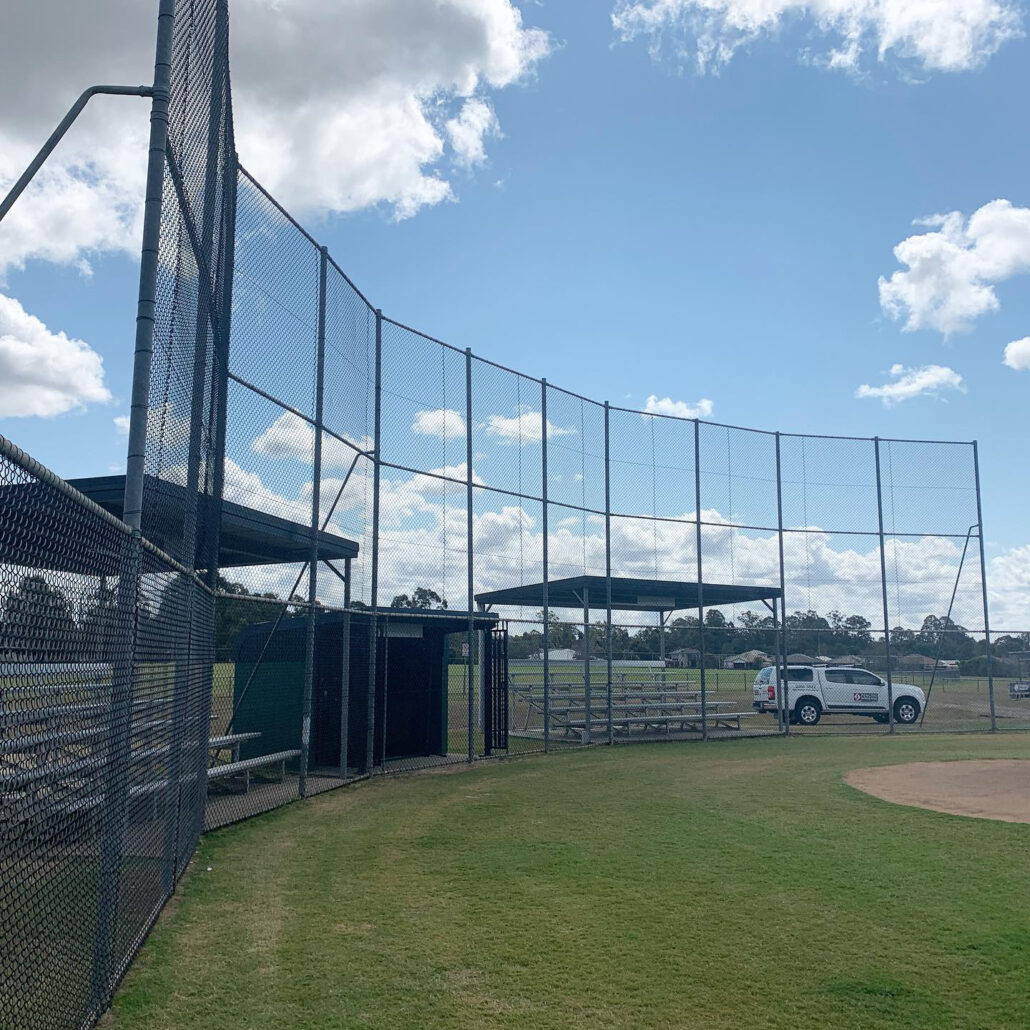



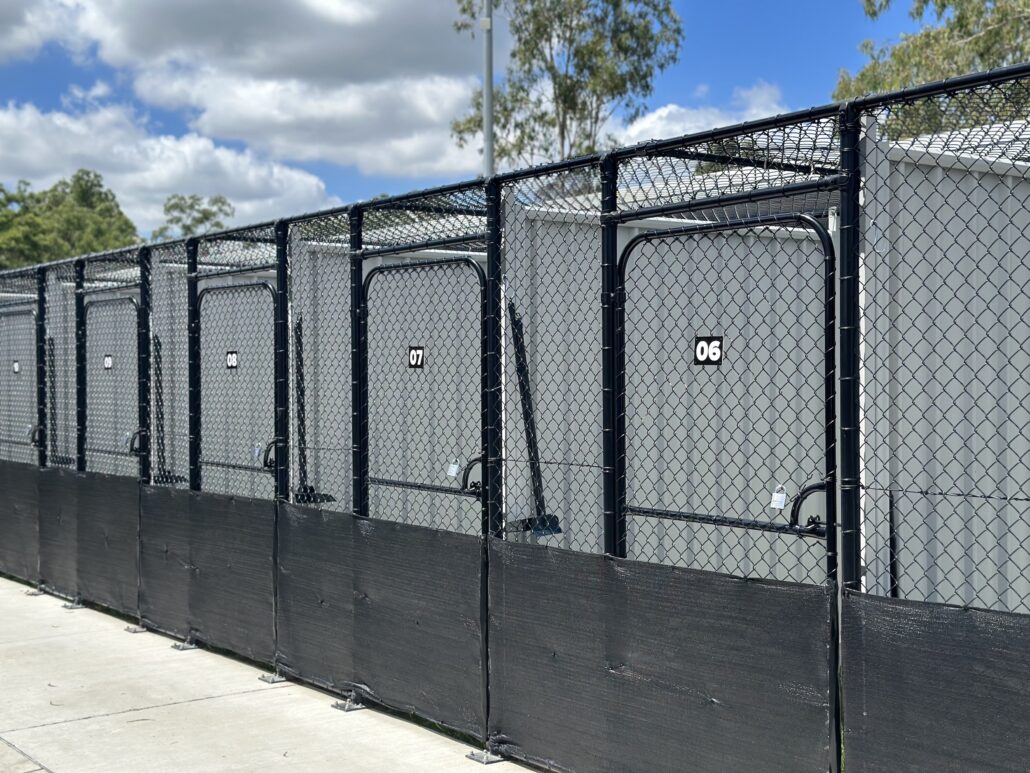





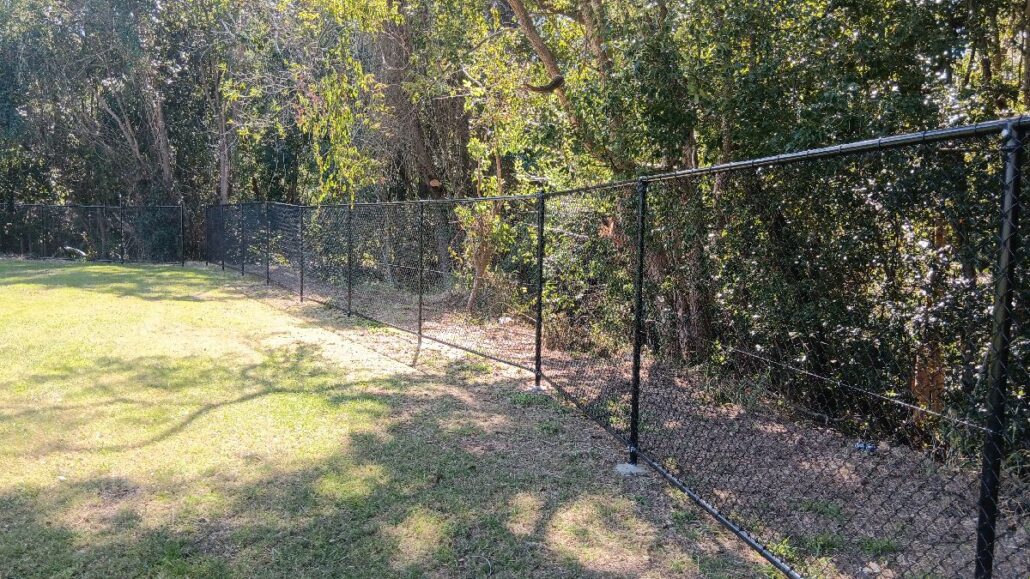
Learn more about Chainwire Fencing
Sizes and Specs
Chainwire fences come in various heights, including 900mm, 1200mm, 1500mm, 1800mm, 2100mm, 2400mm, 3000mm, and 3600mm, with 50mm and 60mm diamond sizes being standard. Smaller diamond sizes are available for specific uses. Diamond size is measured along one side, not diagonally.
For added security, we often install 3 strands of barbed wire on top of 1800mm or 2100mm chainwire, with 2300mm being the most common height (1800mm chainwire + 500mm barbed wire).
Sporting fields typically use chainwire heights between 1200mm and 1800mm.
Chainwire is usually 2.5mm thick, with 3.15mm used in higher security settings. Both thicknesses are available in Galvanised or PVC finishes.
Horizontal Rails
Chainwire fences are often build with horizontal top and/or bottom rails. These rails (commonly made from 42mm (outside diameter) pipe add to the strength of the fence. In some cases our customers opt for just one rail, or in other cases have no rial, and use heavy duty tensioning wire instead.
Chainwire Fence Finishes
Most commonly manufactured chain wire fencing is made with galvanised or PVC finishes. The PVC finish is available in either black or green.
Although much more expensive, some applications do require a third finish of stainless steel. However in most cases, you won’t need a finish because galvanised and PVC coated chainwire fence is very hard wearing and can successfully stand up to the harshest Australian weather.
The top of the wire can be knuckled off” (in other words – smooth) or have a barbed top, which is suitable more for high-security situations.
Posts and Footings
Most commonly manufactured chain wire fencing is made with galvanised or PVC finishes. The PVC finish is available in either black or green.
Although much more expensive, some applications do require a third finish of stainless steel. However in most cases, you won’t need a finish because galvanised and PVC coated chainwire fence is very hard wearing and can successfully stand up to the harshest Australian weather.
The top of the wire can be knuckled off” (in other words – smooth) or have a barbed top, which is suitable more for high-security situations.
Gates
In most cases, a chainwire fence requires a chainwire gate. Our gates are made to measure, and are installed at the same time as the new fence goes in.
Common formats of chainwire gates are
- Single gates (usually approx 900mm to 1500mm wide for pedestrian access)
- Double gates (usually approx 3metres to 10metres wide for car or truck access). In some cases these are powered, but in most cases they are manually operated.
- Sliding gates (usually 4metres to 8metres wide) for car or truck access. These sliding gates are commonly powered by electric or solar motors.
Commercial & Industrial
We work with commercial and industrial property owners to provide a range of fencing options including chainwire fencing and gates, steel security fencing, storage cages, aluminium slat panels and more.
Schools
We work with government and independent schools providing a range of fencing including chainwire, steel security, pool fencing, cages and fencing for various sporting facilities such as ovals and courts.
Public Infrastructure
We carry out fencing projects for the following Public Infrastructure Facilities: Pump stations, power stations and sub stations, water sewerage plants, dams, airports, boat ramps, transport interchanges, shopping centres, ports and more.
Sporting Facilities
We work with sporting clubs, local councils and schools to install fencing across a range of sporting facilities such as football and cricket fields, tennis and multipurpose courts, gyms, axe throwing and others.
